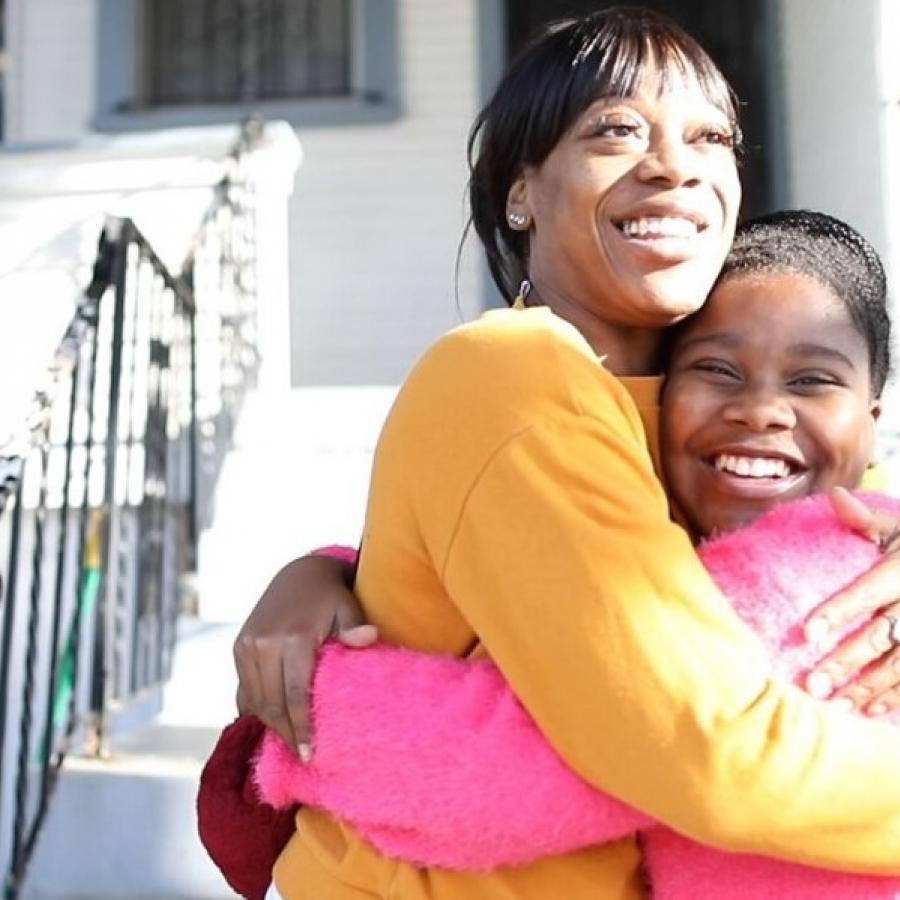Transportation, Jobs, and Civil Rights for the 21st Century: An Interview with Faith-Based Leader Ana Garcia-Ashley
For Ana Garcia-Ashley, living out the values of her Catholic faith is about more than helping one's neighbor, or caring for those in need — it’s about dismantling systems of oppression and racism that have left so many Americans cut off from opportunity. As executive director of Gamaliel, a national network for faith-based community organizing, Garcia-Ashley has helped engage congregations across the country around a range of political issues — from predatory lending to immigration reform to congressional spending. The first woman of color to lead a national community organizing network, she has brought a relentless activist spirit to the faith-based work of her organization.
Advocating for a more equitable transportation system, both in terms of access to quality transportation and access to jobs in the transportation industry, is a core part of Gamaliel’s work. Leveraging 44 Gamaliel affiliates in 17 states and the grassroots Transportation Equity Network that includes over 300 community organizations, the organization advocates for transportation as not only a civil right, but a crucial driver of upward mobility — a link bolstered by a recent Harvard study that identified lower commute times as the single strongest predictor of escaping poverty for low-income families. This connection between transit and economic opportunity can also be seen in Gamaliel’s recent work to promote the Department of Transportation’s local and targeted hiring pilot — a one-year initiative launched last March that allows city and state governments to prioritize the employment of local, low-income workers for contracts to build roads, bridges, and transit facilities.
Garcia-Ashley spoke with America’s Tomorrow on the importance of transportation access — a sector of Gamaliel’s work that has taken center stage following the approval of the local and targeted hiring pilot.
Q: Why is local and targeted hiring important for building opportunity for low-income communities and communities of color?
A: You have these multibillion dollar highway projects that could provide quality jobs with benefits and career pathways into construction jobs. And these projects are often being built in neighborhoods with high unemployment, often that are communities of color. It’s a no-brainer that these projects should be used to have positive impacts on the communities where they’re being built by ensuring that a portion of the construction jobs go to local workers in that community. And we already see that they have been successful when implemented on a local basis. But for decades, there was essentially a moratorium on local hire for federal projects, because unions, developers, and others in construction felt that there wouldn’t be ready labor and it wouldn’t be cost-effective to hire locally. So we were very emotional and excited when, after years of advocating for local hire, Department of Transportation Secretary Anthony Foxx announced the pilot of local hire in March. Of course, now it’s up to advocacy groups like PolicyLink and Gamaliel to go into the communities where we have a footprint and ensure that they put this pilot to use, that we document best practices, and show how all the fears about efficiency and cost-effectiveness aren’t actually a problem.
Q: What has been the most crucial element within the organizing that Gamaliel does to promote local hiring?
A: We need community members to be able to talk about these policies and their impact – not just policy wonks. We need to have the housewife, the preacher, the young person being able to talk about local hire and regulations and transportation access — just like they talk about Beyoncé! Young people always seem to know what she’s doing, but not what the Department of Labor is doing — but the DOL affects their lives a lot more. It’s about building awareness and civic-mindedness in the young generation, building these local champions who can talk about what it means to them, what it means to their communities.
Q: Can you give an example of where local hiring as a policy in transportation projects has been a success?
A: In the building of the I-64 bridge in Missouri, advocates were able to get 1 percent of the budget to go into training and hiring single moms and people of color. So they spent $2 million to not only hire locally, but to train people to take on these jobs — and the project came in under budget. We need more opportunities to implement projects like this, and we need to collect data about them to back up their success and make the case for these policies being applied more widely. Then, hopefully, we can institutionalize local hire into all infrastructure projects and maybe expand it to other federally funded projects. We should be using federal money — tax payer funds — to empower all Americans, not hold up a system that oppresses them, that builds highways that divide low-income communities and displace homes, without giving anything back to the people who live there.
Q: A crucial part of Gamaliel’s work is advocating for access to public transportation as a civil rights issue for low-income people and people of color. Why do you view transit access as a civil right?
A: During the Civil Rights movement, advocates were looking at the immediate and urgent ways of gaining basic rights as citizens, but transportation was always a piece of that larger picture. Rosa Parks did not just sit on the bus because she wanted to sit anywhere she wanted on the bus — it was a symbol of the dignity of people of color, the right to have access to the bus, to have a job to go to on that bus. Victories like the Voting Rights Act and the Civil Rights Act provided us a platform, and a responsibility to make sure that people can move to opportunity — because the structures of our society were not designed to serve women, people of color, or the poor. Instead, these structures have created and preserved hyper poverty areas where people literally cannot leave their neighborhoods because of lack of transit.
But when we hear transportation, the dominant narrative is always the highways, the two-car garage. This is reflected in a transportation budget that has been so focused on the creation of highways and connectors that have historically destroyed and divided communities — especially communities of color. Countless highways have cut through Black communities, displacing residents and destroying Black businesses. We need to move away from just thinking about highways and cars and start thinking about a transportation system where everyone, no matter how poor or elderly or young you are — you can get where you need to go. Because equal opportunity includes being able to get to where you need to go without having to spend $10,000 to own a car. That’s why we feel that transportation is the civil rights issue of the 21st century. It’s essential we expand our conceptions of civil rights to include it.
Q: Gamaliel is a faith-based advocacy group — how do you see the issues of the church intersecting with transportation and civil rights?
A: It’s not a connection that everyone makes right away. I still get push back from people — “Why is a faith-based network so obsessed with the Department of Transportation and how highway dollars are spent, and what does that have to do with living out your faith?” But we see transportation and infrastructure as determining the quality of life people can have, and we see public transit as protecting the planet because, for every bus, you're taking hundreds of cars off the road. People want to know where in the scripture it talks about public transit, but the scripture talks about caring for your neighbors, being a steward of the earth, and living in a community that respects the dignity of people — and we see quality, affordable transportation access as central to living up to these values.


